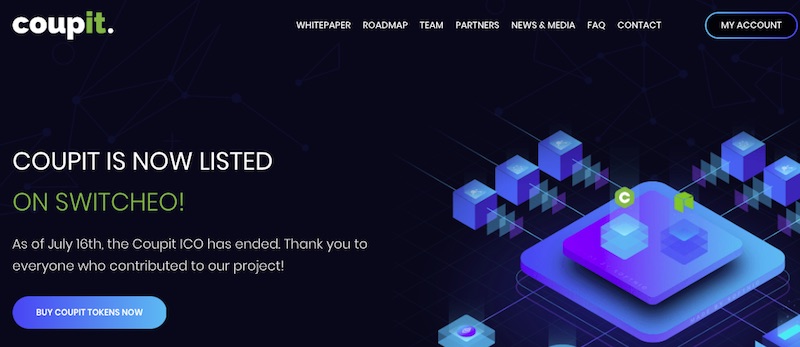
Blockchain use is evolving. Coupit, for example, uses blockchain technology to help retailers by centralizing discounts, rewards, and transaction histories.
In “10 Ways Blockchains Can Benefit Merchants” and “10 Retail Blockchain Vendors,” I covered, respectively, blockchain examples for merchants and vendors that offer solutions.
But blockchain use is evolving. There are many new companies and features. The key benefits that drive this growth are lower transaction costs, increased security, improved tracking, and enhanced convenience.
In this posit, I’ll list examples of ecommerce vendors that use blockchain technology in their products.
Blockchain Vendors with Ecommerce Solutions
Coupit is a marketplace to help retailers by centralizing discounts, rewards, and transaction histories under one site. The platform connects consumers directly with vendors using smart advertising to target shoppers based on their buying history, at no cost to the vendor.
The blockchain technology eliminates the risk of compromising customer data by verifying vendor identities. It also automates payments to vendors that have a history on the network. And the marketplace eliminates fake reviews by using blockchain to verify that the reviewer patronized a business.
CS-Cart has partnered with Omnitude to offer single identity capabilities using blockchain to improve the retail experience. This capability transforms existing core processes for identify management, supply chain, product reviews, and fraud management. Once a consumer enters authentication information into the system, all of his interactions within the system and its partners will use the underlying blockchain technology.
ChanceChain is a blockchain-based social network that enables members to execute secure transactions on the platform using blockchain smart contracts. ChanceChain also supports its own cryptocurrency, called ChanceCoin, to enable easy payments for these transactions.
TraDove facilitates international trade using smart contracts, addressing the trust problem in B2B transactions. Every user on this platform is vetted and authenticated, allowing for transactions to take place in a safe, risk-free environment. TraDove has more than 250,000 corporate buyers and sellers spread across 100 countries.
Eligma is a shopping platform that makes the buying and selling process more efficient. The platform uses blockchain for data protection, smart contracts, and payment solutions. It offers a universal system that will enable any merchant to quickly offer a loyalty program. Consumers will also benefit by having a single ID to work across multiple merchant loyalty programs.
ShipChain is a fully integrated platform that covers the entire supply chain — from a package leaving a warehouse to its last mile delivery to a customer. The platform is built on blockchain contracts and enables “track and trace” at any step in the supply chain. It also reduces costs by eliminating middle parties.
Shopin is an app that uses blockchain to deliver a personalized shopping experience on retail websites. It creates a universal profile for every shopper that can be mined by retailers for special offers and targeted ads, but only if approved by the shopper. Thus Shopin addresses a major issue in ecommerce: customer data ownership and privacy.
Volt Markets is a blockchain-based same-day delivery platform that connects the delivery team directly with end customers. This will eliminate brokers and drastically lower delivery costs. Deliveries can be executed by anyone using smart contracts. End customers can give rewards for on-time delivery using a rating system. The platform is extensible and allows many delivery options, depending on consumer demand and preferences.
Revain is a blockchain-based product review platform. It filters out low-end reviews and makes quality ones eligible for rewards via the platform’s cryptocurrency, RVN token. This encourages consumers to leave quality reviews. Due to the blockchain, reviews can never be changed or deleted, allowing shoppers to make decisions based on real feedback.
SmartContract is a blockchain-based service that enables contracts and payments across leading banks and payment platforms, such as HSBC, Chase, Mastercard, and PayPal. Using blockchain to govern contracts helps avoid brokers in the middle, lowering costs.
Crypto Payments
There are many crypto payment vendors. This space has grown, with mainstream ecommerce sites such as Expedia, Newegg, and Etsy accepting cryptocurrencies. Crypto payment vendors include BitPay, Bitstamp, Coinbase, Coinify, Bitnet Technologies, and Kraken.




